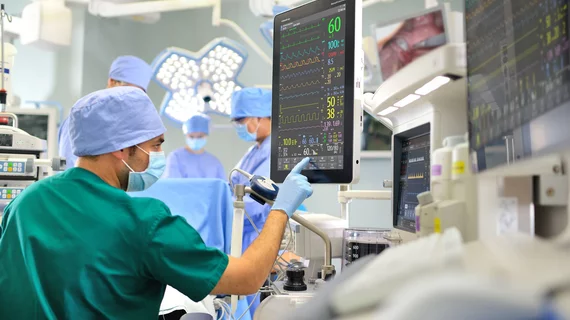AI guides trauma surgeons in real time
A developer of software used in orthopedic surgery has demonstrated the utility of AI-aided fluoroscopy guidance for operating on orthopedic trauma patients.
Salt Lake City-based OrthoGrid Systems announced the successful testing of its product by surgeons at University Medical Center (UMC) in Las Vegas.
The company says its R&D personnel worked with its research and education team in France to imbue a neural network with the ability to identify and track orthopedic implants, instruments and surgical tools.
UMC orthopedic surgeon Jessica Bear, MD, says equipping orthopedic trauma specialists with a way to visualize the trajectories of these items live during surgery “offers the hope of improved efficiency, accuracy and reproducibility.”
The company adds that the UMC demonstration paves the way for its technology to “solve many more intraoperative challenges that are currently unassisted or unsupported digitally.”

